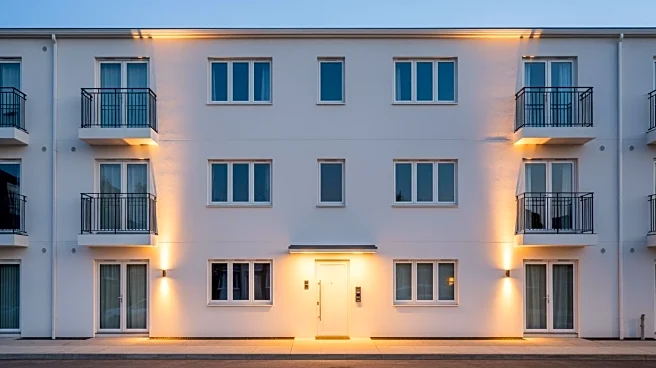What's Happening?
Aurora has been awarded a $2 million state grant to improve heating and air conditioning systems in rental properties occupied by low- to moderate-income residents. The initiative aims to enhance energy
efficiency and reduce utility costs, thereby preserving affordable housing. Landlords will apply for grants, requiring tenant income information to qualify. The program targets properties with six or fewer units, where at least half of the tenants meet income criteria. The city plans to launch the program in early 2026, with eligibility requirements and procedures still under development.
Why It's Important?
This grant represents a significant investment in affordable housing, addressing the critical issue of utility costs that impact housing affordability. By upgrading HVAC systems, the program aims to lower energy bills for tenants, improving their quality of life and financial stability. The initiative supports sustainable housing practices, potentially setting a precedent for similar programs in other cities. It also highlights the importance of state and federal collaboration in addressing housing challenges, leveraging pandemic-era funds to support community development.
What's Next?
Aurora plans to finalize the program's policies and eligibility criteria, with an educational campaign for landlords and tenants. The city is considering a lottery system for grant distribution to ensure equitable access. The program's success could lead to further funding opportunities and expansion, potentially influencing housing policies at the state level. Stakeholders, including landlords and community organizations, are likely to engage in discussions to optimize the program's impact.
Beyond the Headlines
The program underscores the intersection of housing and energy policy, promoting environmental sustainability through energy-efficient upgrades. It may encourage landlords to adopt more sustainable practices, contributing to broader environmental goals. The initiative also highlights the role of government in facilitating access to affordable housing, potentially sparking debates on the balance between public and private sector responsibilities in housing provision.









